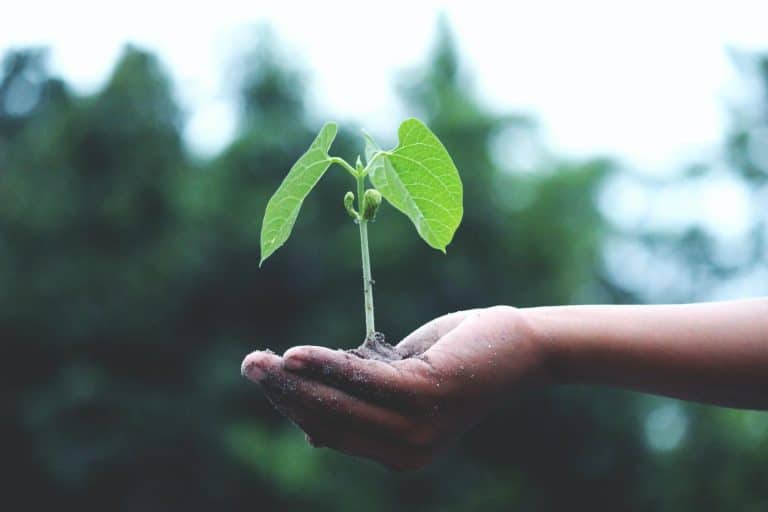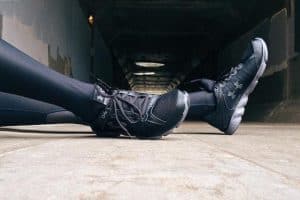Did you realise that the clothing industry is accountable for a tenth of all carbon exhausts worldwide? Eco-friendly fashion has emerged as a response to this alarming statistic, with popular sustainable fashion brands like Eileen Fisher and Reformation leading the way.
In our exploration of “Eco-Friendly Fashion: Comparing Eileen Fisher and Reformation,” we’ll delve into their unique approaches to sustainability. From supply chain transparency at Eileen Fisher to upcycling techniques used by Reformation, these two brands have made impressive strides in reducing their environmental impact.
Furthermore, we will discuss other aspects of eco-friendly clothing such as zero waste vs upcycled clothing brands, Patagonia’s commitment to responsible material sourcing, affordable options for budget-conscious consumers, B Corporation Brands’ partnerships with nonprofits for greater impact, celebrity influence on sustainable fashion choices and promoting circularity through resale initiatives.
By examining “Eco-Friendly Fashion: Comparing Eileen Fisher and Reformation” in-depth, you’ll gain valuable insights into how these trailblazing companies are shaping the future of sustainable fashion while offering inspiration for your own wardrobe choices. So let’s dive in!
Table of Contents:
- Eileen Fisher’s Sustainable Practices
- Reformation’s Eco-Friendly Approach
- Zero Waste vs Upcycled Clothing Brands: A Tale of Two Strategies
- Patagonia’s Commitment to Responsible Material Sourcing
- Affordable Fashion Options: Eco-Friendly Clothing on a Budget
- B Corporation Brands in Sustainable Fashion
- The Impact of Celebrities on Sustainable Fashion
- Promoting Circularity through Resale Initiatives
- Is Reformation Really Eco-Friendly?
- What Is the Most Sustainable Fashion Brand?
- What Is the Difference Between Ethical and Eco-Friendly Fashion?
- How Would You Compare Fast-Fashion vs Sustainable-Fashion?
- Conclusion
Eileen Fisher’s Sustainable Practices
Let’s talk about Eileen Fisher, a luxury clothing brand that puts sustainability and ethical production at the forefront of its operations. The founder herself is an eco-conscious fashionista who believes in keeping only her favorite items in her closet to reduce waste. Impressive, right?
Supply Chain Transparency at Eileen Fisher
Transparency is key when it comes to sustainable practices, and Eileen Fisher nails it. The brand shares detailed information on their supply chain partners and manufacturing processes so you can feel good about your purchases.
Use of Organic Materials in Their Products
You’ll love this: Eileen Fisher uses Global Organic Textile Standard (GOTS) certified organic cotton for many of their products. This means they’re committed to using materials with less negative impact on our environment compared to conventional textiles used by fast-fashion companies.
Eco-Friendly Fabrics Galore.
- Tencel Lyocell – A soft fabric made from sustainably harvested eucalyptus trees. Talk about tree-hugging fashion.
- Oeko-Tex Certified Wool – This wool is produced without harmful chemicals or dyes ensuring both sheep and planet are happy campers.
- Recycled Polyester & Nylon – By using recycled materials like plastic bottles, they help divert waste from landfills while creating stylish garments. Win-win situation.
If you care about eco-friendly fashion and want to look great while doing your part for the planet, Eileen Fisher is a must-see. Their commitment to supply chain transparency, use of organic materials, and efforts to minimize environmental impact truly sets them apart from other sustainable clothing brands.
Reformation’s Eco-Friendly Approach
Let’s talk about Reformation, a game-changer in sustainable fashion.
This popular brand not only offers stylish clothing but is also committed to reducing its environmental impact through innovative practices.
Reformation makes use of materials like certified organic cotton, recycled polyester, and pre-used cotton to minimize their environmental impact. They also prioritize sustainable practices in their supply chain and work with ethical factories.
By using recycled materials and reducing waste, Reformation is leading the way in sustainable fashion brands. They are also certified by the Global Organic Textile Standard, which ensures that their organic cotton is grown without harmful chemicals.
Now you know how both Eileen Fisher and Reformation are making strides towards a more sustainable future in the fashion industry.
Zero Waste vs Upcycled Clothing Brands: A Tale of Two Strategies
When it comes to sustainable fashion, there are two main approaches that brands like Eileen Fisher and Reformation take – zero waste and upcycling.
Let’s explore the differences between these eco-friendly practices.
Strategies Employed by Zero-Waste Brands
Zero-waste brands focus on eliminating waste throughout their entire production process. A great example is Tonle, a brand that creates clothing from pre-consumer textile scraps left over during fabric production. Their innovative approach includes using every last bit of material, even turning tiny scraps into paper for hangtags or stuffing pillows.
Focus Areas for Upcycled Clothing Companies
Upcycled clothing companies, on the other hand, repurpose existing materials to create new garments with minimal environmental impact. Elvis & Kresse, a British brand known for transforming decommissioned fire hoses into luxury accessories, is an excellent example of this practice in action.
Patagonia’s Commitment to Responsible Material Sourcing
Patagonia is a leading example of an environmentally conscious fashion label, providing stylish and practical apparel while also investing in responsible material sourcing. Patagonia’s commitment to eco-friendly materials makes them a leader in the sustainable outerwear industry. Responsible material sourcing is at the core of their business model, and here’s how they achieve it:
Environmentally Friendly Fabrics Used by Patagonia
Their range includes responsibly sourced wool, Tencel Lyocell fabric made from sustainably harvested trees, recycled cotton, and certified organic cotton. All these fabrics have significantly less negative impact on the environment compared to conventional textiles used in fast-fashion garments.
Outerknown Sub-brand Focusing on Lifetime-Guaranteed S.E.A Jeans
In addition to their main line of products, Patagonia has also introduced an innovative sub-brand called Outerknown that focuses on producing lifetime-guaranteed jeans known as S.E.A Jeans (Social. Environmental. Accountability.). Made with 100% organic cotton grown without synthetic fertilizers or pesticides, S.E.A Jeans are not only eco-friendly but also designed to last a lifetime, reducing the need for frequent replacements.
Patagonia’s commitment to sourcing sustainable materials is an example of how fashion and environmentalism can be harmoniously combined, creating high-quality garments without sacrificing style. Their efforts prove that style and sustainability can coexist without compromising on quality or design. When searching for outdoor apparel, make Patagonia your choice for sustainable fashion that won’t sacrifice style or quality.
Affordable Fashion Options: Eco-Friendly Clothing on a Budget
Who says sustainable fashion has to break the bank? You can find affordable eco-friendly clothing options without compromising style or quality.
For instance, Eileen Fisher’s organic linen wide trouser pants are crafted from medium-weight fabric that offers both comfort and durability. Check out Cotopaxi’s selection of coats and jackets, made with recycled materials and a commitment to ethical production. And who doesn’t love a cozy cashmere sweater? Naadam’s cashmere sweaters, priced at just $75 each, prove that luxury can be accessible too.
Eco-Friendly Brands for Budget-Conscious Consumers
Finding sustainable clothing brands within your budget is easier than ever before. Here are some popular sustainable fashion brands:
- Pact: Known for their organic cotton basics, Pact offers everything from underwear to activewear. Check out their website.
- Ethletic: If you’re searching for fair-trade sneakers, Ethletic has you covered. Browse their collection of sustainable footwear.
- Alternative Apparel: With a focus on eco-friendly materials and ethical factories, Alternative Apparel is your go-to for casual clothing. Explore their range of stylish options.
Remember, choosing affordable sustainable fashion brands not only benefits your wallet but also contributes to a healthier planet. By choosing to support sustainable fashion brands, we can both reduce our expenses and help protect the environment. By doing so, we can reduce the environmental impact of the fashion industry and promote a more sustainable future.
So go ahead – embrace eco-friendly practices while staying fashionable.
B Corporation Brands in Sustainable Fashion
Let’s talk about B Corporations, specifically Pangaia, a popular sustainable fashion brand. Pangaia partners with social and environmental nonprofits to produce their organic cotton products more sustainably. Their commitment to sustainability is truly impressive.
Additional Benefits of B Corp Certification:
- B Corps are held accountable for meeting high standards of social and environmental performance.
- This certification can boost consumer trust in a brand’s commitment to ethical practices and sustainability efforts.
- B Corps join a community of like-minded businesses working together towards creating positive change within the industry.
What This Means For You As A Consumer:
When you support B Corporation brands like Pangaia, you’re not only getting stylish and eco-friendly clothing but also contributing to a greener future for the fashion industry. So go ahead, make your wardrobe more sustainable while supporting companies that truly care about our planet.
The Impact of Celebrities on Sustainable Fashion
Celebrities have an undeniable influence on the fashion industry and consumer behaviour, especially when it comes to promoting sustainable practices. When it comes to sustainable fashion, some stars are using their influence for good by endorsing eco-friendly brands and raising awareness about the importance of responsible consumption.
One such brand that has caught the attention of A-listers with its commitment to sustainability is Noize, a Canadian label. The company uses faux fur, vegan leather, down alternatives, organic cotton, and recycled materials in their production process – proving that style doesn’t have to come at the expense of our planet.
As consumers, we can take inspiration from our favorite celebrities and explore more sustainable fashion options for ourselves. By supporting sustainable fashion brands like Noize, Eileen Fisher, and Reformation, we can make a positive impact on the fashion industry and the environment.
Promoting Circularity through Resale Initiatives
Let’s talk about the power of circularity in sustainable fashion. Resale initiatives play a crucial role in reducing waste and promoting eco-friendly practices within the industry. Boyish Jeans, for instance, is a brand that takes this responsibility seriously. Their use of certified organic cotton isn’t their only contribution to sustainability – they’ve also partnered with ThredUp. This collaboration allows customers to give their closet castoffs a second life through resale or donation initiatives.
Collaborations between Responsible Fashion Brands and Resale Platforms
Teaming up with online resale platforms like ThredUp enables sustainable clothing brands to reach wider audiences while minimizing environmental impact. In turn, consumers have access to more affordable options without compromising on style or quality.
The Role of Donations in Promoting Circularity
Besides reselling pre-loved items, donating gently used clothes can help extend their lifecycle and reduce landfill waste significantly. Fashion companies that encourage donations are contributing towards creating an eco-conscious community by fostering responsible consumer behavior.
We can work together to build a more sustainable fashion industry future.
Is Reformation Really Eco-Friendly?
Yes, Reformation is genuinely eco-friendly. They focus on sustainable practices such as using upcycled and deadstock materials, investing in renewable energy, minimizing water usage, and implementing a carbon offset program. Additionally, they maintain transparency about their supply chain and prioritize ethical labor practices. Learn more about their sustainability efforts here.
What Is the Most Sustainable Fashion Brand?
It’s difficult to pinpoint one single “most sustainable” fashion brand since many brands excel in different aspects of sustainability. However, some leading examples include Patagonia, Eileen Fisher, Reformation, Stella McCartney, and Outerknown. These brands prioritize responsible sourcing of materials and promote circularity through resale initiatives.
What Is the Difference Between Ethical and Eco-Friendly Fashion?
Ethical fashion focuses on fair treatment of workers throughout the supply chain by ensuring safe working conditions and providing fair wages. Eco-friendly or sustainable fashion emphasizes reducing environmental impact through responsible material sourcing (organic fabrics), waste reduction (upcycling), energy efficiency (renewable resources), water conservation measures among other strategies.
How Would You Compare Fast-Fashion vs Sustainable-Fashion?
- Fabric: Fast-fashion often uses cheap synthetic fibers while sustainable-fashion prioritizes organic or recycled materials.
- Lifespan: Sustainable clothing tends to be higher quality with longer lifespans compared to disposable fast-fashion items that quickly lose shape/color.
- Pricing: Sustainable garments may have higher upfront costs but offer better value over time due to durability; whereas fast-fashion has lower prices but shorter life spans resulting in increased spending overall for replacement pieces.
- Environmental Impact: Sustainable fashion focuses on minimizing environmental impact, while fast-fashion contributes to pollution and waste due to mass production and short-lived trends.
Conclusion
Eco-Friendly Fashion: Comparing Eileen Fisher and Reformation
When it comes to eco-friendly fashion, both Eileen Fisher and Reformation are leading the way with their sustainable practices. Eileen Fisher’s supply chain transparency initiatives and use of organic materials in their products make them a standout brand for conscious consumers. Meanwhile, Reformation’s upcycling techniques and resources provided for customers’ green lifestyle show their commitment to reducing waste.
Other brands such as Tonle and Elvis & Kresse also have unique approaches to sustainability, while Patagonia, Outerknown, Pangaia, Noize, and Boyish Jeans all offer different aspects of environmentally friendly fashion worth exploring. Additionally, shopping tips from industry experts like vintage rental consignment stores or garment-swapping can help reduce our impact on the planet.







